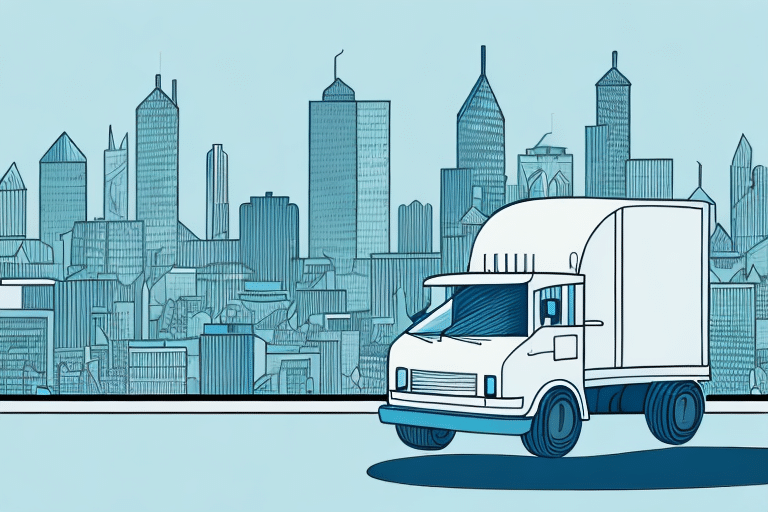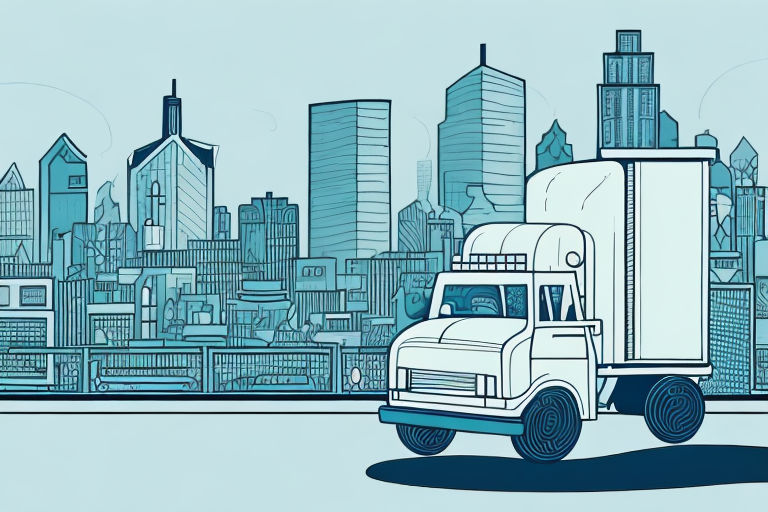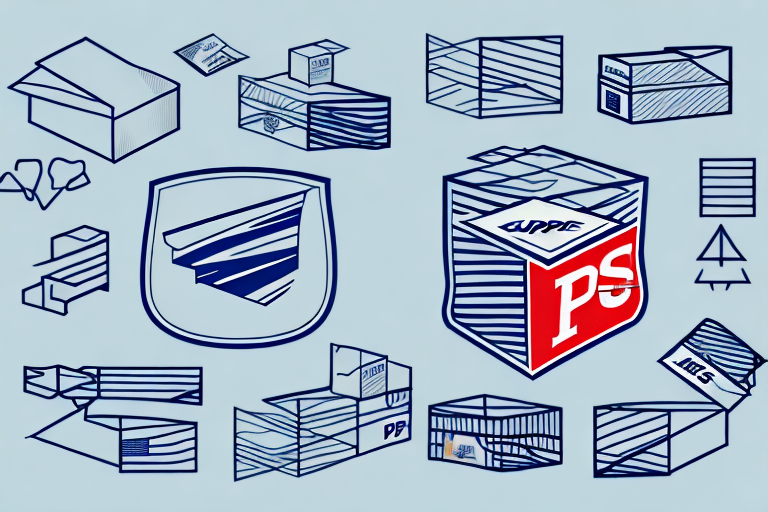Maximizing Efficiency with Commercial Delivery Services
Running a business can be a challenging and complex process, especially when it comes to ensuring that your goods are delivered to your customers on time and in excellent condition. Commercial delivery services are designed to simplify this process by providing businesses with reliable and efficient solutions. In this article, we explore various strategies to maximize your business's efficiency through the use of commercial delivery services.
The Benefits of Utilizing Commercial Delivery Services
One of the most significant advantages of using commercial delivery services is the substantial savings in time and money. By outsourcing the logistics of shipping products, businesses can focus on core activities such as product development and marketing. Additionally, commercial delivery services offer access to a broader network of delivery options, enabling faster and more efficient product distribution.
- Cost Savings: Avoid expenses related to maintaining an internal delivery fleet, including vehicle maintenance, fuel, and insurance.
- Time Efficiency: Streamlined delivery processes allow businesses to allocate resources more effectively.
- Scalability: Easily adjust delivery volumes to match business growth without the need for significant capital investment.
Improving customer satisfaction is another key benefit. Reliable delivery services ensure that customers receive their orders on time and in pristine condition, leading to positive reviews and repeat business. According to a Statista report, timely deliveries significantly enhance customer loyalty in e-commerce.
Furthermore, commercial delivery services provide valuable insights through tracking delivery times, routes, and other metrics. These data-driven insights enable businesses to identify areas for improvement, optimize operations, and ultimately enhance overall performance.
Types of Commercial Delivery Services
Choosing the right type of commercial delivery service is crucial for aligning with your business needs. The most common types include:
- Courier Services: Ideal for small businesses needing to deliver small packages over short distances.
- Freight Services: Suited for larger shipments that require transportation over longer distances.
- Trucking Services: Designed for transporting large quantities of goods across extensive routes.
- Same-Day Delivery: Perfect for businesses that require rapid delivery, often used by e-commerce platforms.
When selecting a service, consider factors such as cost, reliability, and the specific delivery needs of your business. Evaluating these aspects ensures that you choose a provider that supports your operational goals effectively.
Choosing the Right Delivery Service Provider
Selecting the appropriate delivery service provider involves evaluating several critical factors:
- Reliability: Look for providers with a proven track record of timely and safe deliveries.
- Speed: Consider the delivery speed offered and how it aligns with your business requirements.
- Cost: Ensure the service is cost-effective and offers good value for the price.
- Customer Service: Excellent customer support can resolve issues promptly and maintain smooth operations.
- Technology and Tracking: Advanced tracking systems provide real-time visibility into your shipments, enhancing inventory management and transparency.
Providers that offer robust technological solutions, such as real-time tracking and online management portals, can significantly improve your delivery management process. For instance, real-time tracking allows you to monitor shipments and provide accurate delivery estimates to your customers, enhancing overall service quality.
Streamlining Your Delivery Process
Outsourcing to commercial delivery services can streamline your delivery operations in several ways:
- Optimized Routes: Professional delivery companies use algorithms to determine the most efficient routes, reducing delivery times and fuel costs.
- Streamlined Schedules: Coordinated delivery schedules ensure timely deliveries, improving reliability.
- Enhanced Tracking: Integrated tracking systems allow for better management and oversight of delivery processes.
By leveraging these efficiencies, businesses can better manage inventory, minimize waste, and enhance customer satisfaction. Additionally, commercial delivery services provide flexibility in delivery options, such as same-day, next-day, or international shipping, allowing businesses to cater to a diverse customer base effectively.
Reducing Costs and Increasing Profit Margins
Utilizing commercial delivery services can significantly impact your bottom line by reducing operational costs and increasing profit margins. Key strategies include:
- Lower Shipping Costs: High-volume delivery companies often secure discounted shipping rates, passing savings onto your business.
- Route Optimization: Efficient routing minimizes fuel consumption and transportation expenses.
- Risk Reduction: Comprehensive insurance coverage and secure handling practices reduce costs associated with lost or damaged goods.
These cost-saving measures contribute to higher profit margins and allow businesses to reinvest in other areas, fostering growth and sustainability.
Improving Customer Satisfaction
Customer satisfaction is paramount for business success, and reliable delivery services play a crucial role in achieving it. Key aspects include:
- Timely Deliveries: Ensuring orders arrive on schedule enhances customer trust and loyalty.
- Product Integrity: Safe and secure handling prevents damage, ensuring customers receive products in excellent condition.
- Flexible Delivery Options: Offering various delivery speeds and options caters to different customer needs and preferences.
A study by Forbes highlights that efficient delivery services are directly linked to higher customer satisfaction and increased repeat business.
Leveraging Technology in Delivery Services
Technology plays a pivotal role in enhancing the efficiency and reliability of commercial delivery services. Innovations include:
- GPS Tracking: Real-time tracking provides visibility into shipment locations and estimated delivery times.
- Automated Dispatch Systems: Streamline the assignment of deliveries, optimizing route planning and resource allocation.
- Digital Signatures: Ensure secure and verified receipt of goods, reducing the risk of disputes.
These technologies not only improve operational efficiency but also enhance the customer experience by providing transparent and reliable delivery information.
Moreover, advancements like artificial intelligence and machine learning are being integrated into delivery management systems to predict delivery times more accurately and anticipate potential delays, further refining the delivery process.
Managing Risk and Ensuring Security
Ensuring the security and safety of deliveries is essential for maintaining business integrity and customer trust. Effective risk management strategies include:
- Comprehensive Insurance: Protects against potential losses from damaged or lost shipments.
- Secure Packaging: Properly packaging goods minimizes the risk of damage during transit.
- Clear Labeling: Detailed labels ensure that packages are handled correctly by delivery personnel.
Additionally, selecting a delivery provider with robust security measures and a history of safe deliveries can mitigate risks and provide peace of mind.
The Future of Commercial Delivery Services
The commercial delivery industry is rapidly evolving, driven by technological advancements and changing consumer expectations. Future trends to watch include:
- Drones and Autonomous Vehicles: These technologies promise faster and more efficient last-mile delivery solutions.
- Artificial Intelligence: AI-driven analytics and automation will further optimize delivery routes and processes.
- Sustainable Practices: Increasing focus on eco-friendly delivery options, such as electric vehicles and green packaging, to reduce the environmental impact.
Staying abreast of these trends allows businesses to adapt and leverage new technologies, ensuring continued efficiency and competitiveness in the delivery landscape.
Overall, maximizing your business's efficiency with commercial delivery services is a strategic investment that can lead to reduced costs, improved customer satisfaction, and enhanced profitability. By selecting the right delivery provider, leveraging advanced technologies, and implementing effective risk management strategies, businesses can optimize their delivery operations and achieve long-term success.
Conclusion
In summary, commercial delivery services offer a multitude of benefits that can significantly enhance your business operations. From cost savings and increased efficiency to improved customer satisfaction and access to advanced technologies, these services provide the tools necessary for business growth and success. As the industry continues to innovate, staying informed about the latest trends and leveraging the right delivery solutions will position your business for sustained profitability and competitive advantage.








